 Abraham Lincoln
If given the truth, the people can be depended upon to meet any national crisis...
Abraham Lincoln
If given the truth, the people can be depended upon to meet any national crisis...
 Guildford news...
for Guildford people, brought to you by Guildford reporters - Guildford's own news service
Guildford news...
for Guildford people, brought to you by Guildford reporters - Guildford's own news service
Extinction of Insects Threatens Surrey Wildlife, and Our Own Lives
Published on: 25 Nov, 2019
Updated on: 26 Nov, 2019
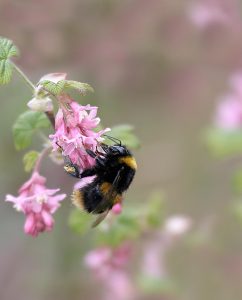
Bumblebee – photo D Smith
A frightening new report from a group of Wildlife Trusts has revealed a drastic drop in insect numbers in Britain, with 41 species facing extinction.
In 2017, the State of Surrey’s Nature reported 34 per cent of invertebrates already extinct in the county or heading towards that fate.
Insect populations are dying out up to eight times faster than larger animals, said invertebrate expert Dave Goulson, biology professor at the University of Sussex, author of the latest report, Insect Declines and Why They Matter.
Insects are needed to pollinate three-quarters of our food crops and are the main food source for many birds, fish and smaller mammals higher up the food chain.
In Surrey, sharp declines towards extinction have been recorded in many invertebrate groups from bumblebees (42%), ground beetles (51%) and butterflies (44%) to caddisflies (42%), freshwater snails, slugs and mussels (34%) and hoverflies (25%) (source:
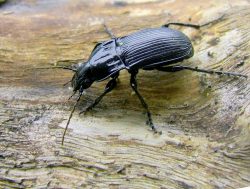
Common ground beetle – photo Alan Price
A further 18% of the other 200 bee species in Surrey are either threatened or extinct. Individual species such as the shrill carder bee is now extinct in Surrey and other familiar insects such as dung beetles, May bugs, pond-skaters and the garden tiger moth are in decline locally.
The new report also highlights the real and lasting knock-on impacts on insect-eating birds, bats and fish, and also the cost to society in terms of the millions of pounds in lost revenue and broken ecosystems. But with habitat loss and fragmentation and nearly 17,000 tonnes of pesticides spread across the landscape every year in the UK it is no surprise that insects are in trouble.
But the report also suggests a clear path to reversing the rate of decline, with measures that could stop what is an imminent ecological disaster.
The Trusts believe that with co-ordinated and concerted action from government, local authorities, food growers and the public, insect populations can recover and thrive once more to fulfil their critical role in the ecosystems that support all life.
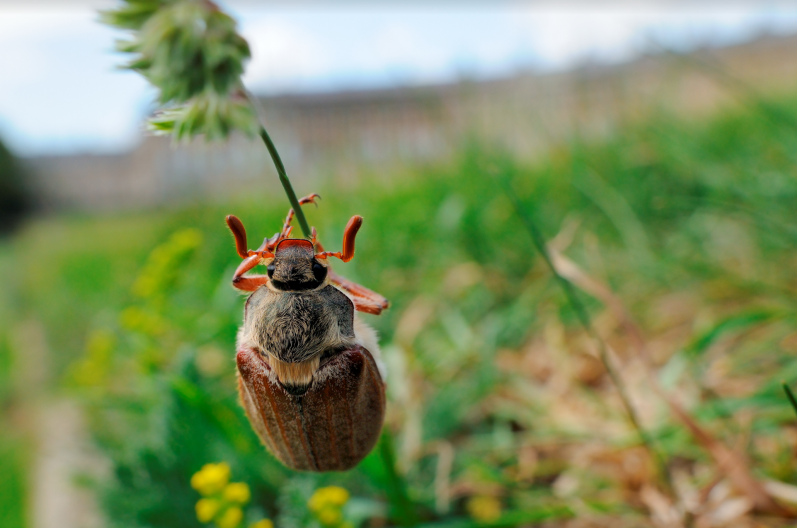
May bug or cock chafer – Photo Nick Upton
Dr Kate Basley, citizen scientist co-ordinator at Surrey Wildlife Trust, said: “Surrey’s beautiful landscapes and green spaces are rapidly becoming inhospitable green deserts for wildlife. Everyone must do their bit to halt the extinction.
“We must start creating more insect-friendly habitats and reduce pesticide use on gardens, farms, parks and roadsides. There are simple actions that will help insect populations bounce back. It would be very sad to see the end of such wonderful insects like pond-skaters, May bugs and dung beetles here.”
Prof Goulson added: “Insects make up the bulk of known species on earth and are integral to the functioning of terrestrial and freshwater ecosystems, performing vital roles such as pollination, seed dispersal and nutrient cycling.
“They are also food for numerous larger animals, including birds, bats, fish, amphibians and lizards. If we don’t stop the decline of our insects there will be profound consequences for all life on earth.”
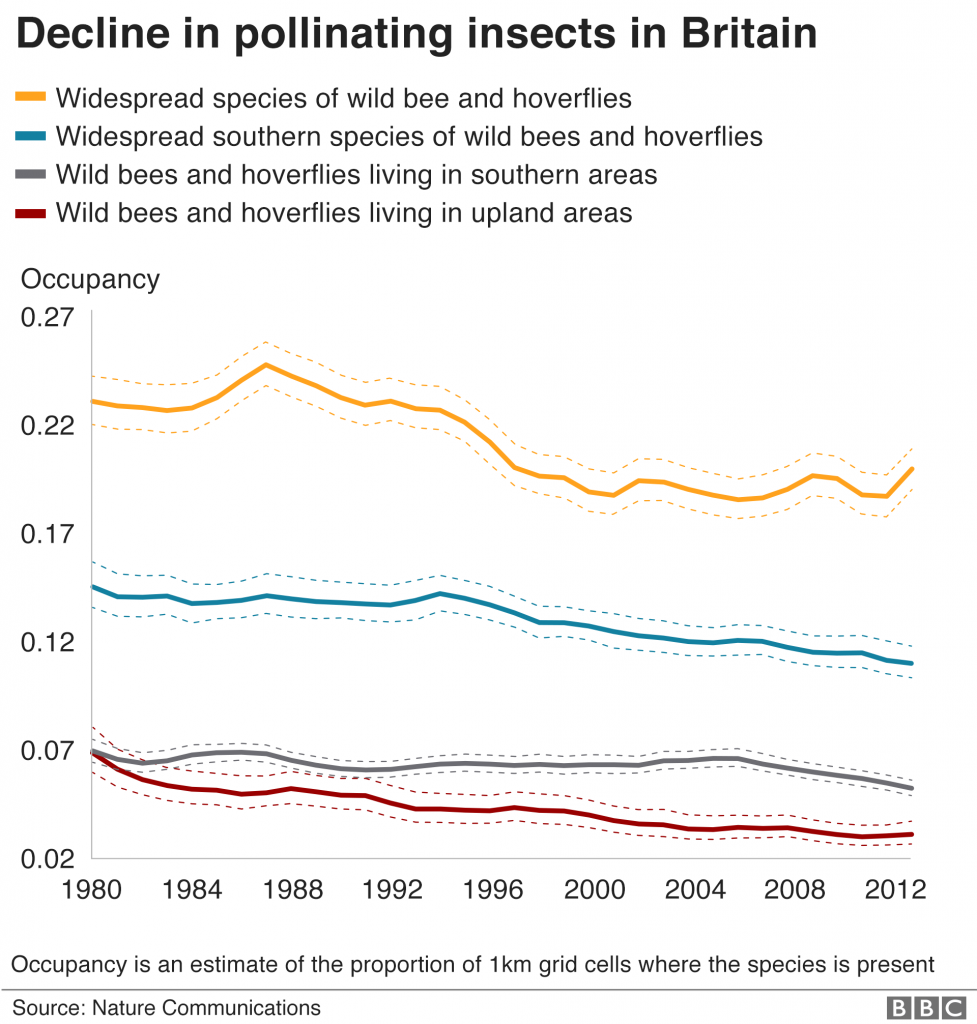
Wildlife Trusts across the country are calling for a new Environment Bill to secure the creation of a far-reaching and resilient nature recovery network to reverse the decline of insect populations and all wildlife.
The group is also supporting the introduction of an ambitious and legally binding pesticide reduction targets for the UK; a crucial step in safeguarding invertebrates.
Other countries in Europe already have such targets and are making significantly more progress than the UK towards achieving the urgently needed transition from routine use of harmful chemicals in urban green spaces, gardens and farmland.
This article is based on a Surrey Wildlife Trust press release.
Responses to Extinction of Insects Threatens Surrey Wildlife, and Our Own Lives
Leave a Comment Cancel replyPlease see our comments policy. All comments are moderated and may take time to appear.
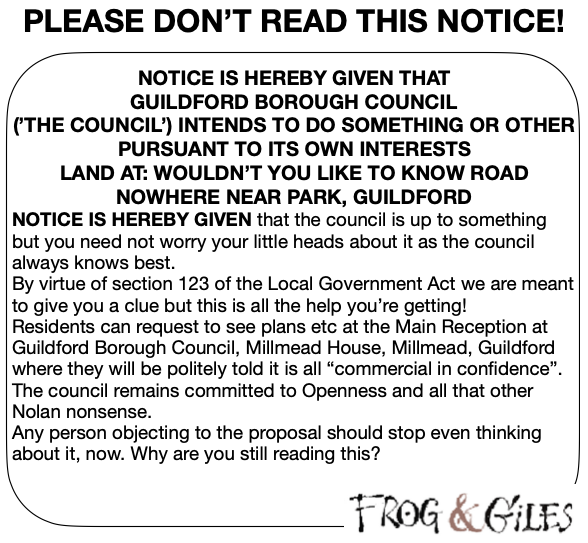
See Dragon story: GBC’s Explanation of Major Land Sale Notice Error ‘Borders on Arrogant’ Says Councillor



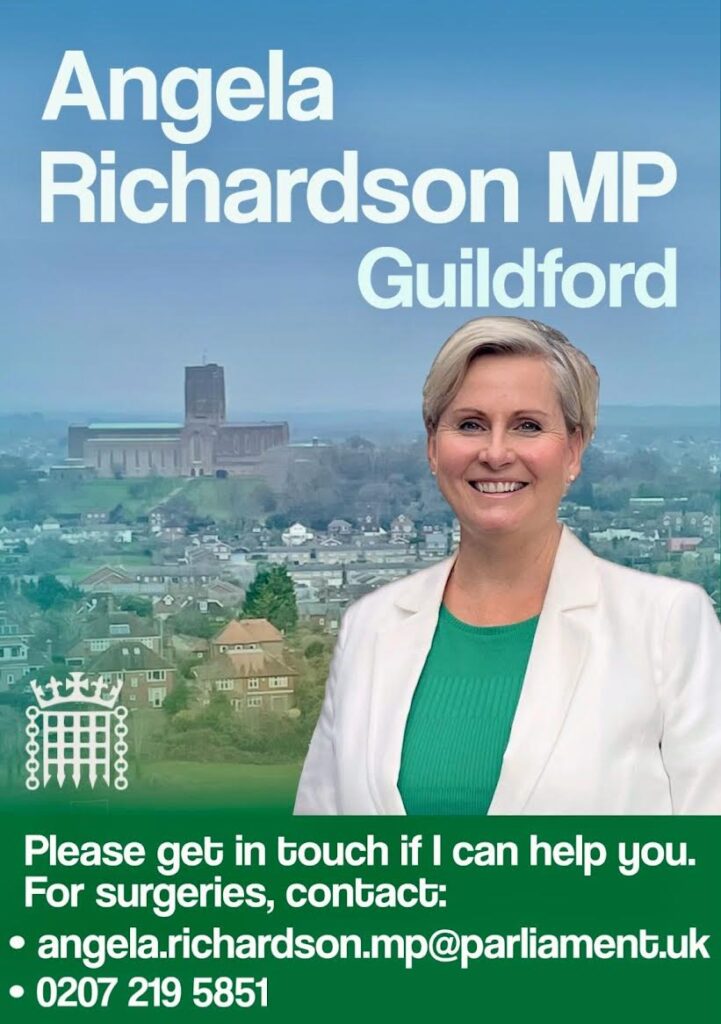



Recent Articles
- Birdwatcher’s Diary No.302
- Diocese of Guildford Appoints New Registrar and Legal Advisor
- ‘One in Five’ Surrey Police Officers Seeking Another Job
- Insights: Lead from the Front on Values
- New Investment Will Help Surrey Fire and Rescue Service Improve Training Facilities
- Letter: Are the PCC Candidates Relying on Their Party Labels?
- Notice: Sing Barbershop – Every Tuesday
- Modernised Surrey Police Headquarters Will Require New Access Road
- Notice: Open Mic Night at the Guildford Institute – April 27
- ‘It Will Grow’ Says Councillor About Replacement Tree in Upper High Street


Recent Comments
- Ben Paton on ‘What Is Ofwat Doing?’ Asks a Customer
- Ben Paton on Insights: Lead from the Front on Values
- Jim Allen on Insights: Lead from the Front on Values
- David Smith on ‘It Will Grow’ Says Councillor About Replacement Tree in Upper High Street
- Penny Panman on ‘It Will Grow’ Says Councillor About Replacement Tree in Upper High Street
- John Dawson on ‘It Will Grow’ Says Councillor About Replacement Tree in Upper High Street
Search in Site
Media Gallery
Dragon Interview: Local Artist Leaves Her Mark At One of England’s Most Historic Buildings
January 21, 2023 / No Comment / Read MoreDragon Interview: Lib Dem Planning Chair: ‘Current Policy Doesn’t Work for Local People’
January 19, 2023 / No Comment / Read MoreA3 Tunnel in Guildford ‘Necessary’ for New Homes, Says Guildford’s MP
January 10, 2023 / No Comment / Read More‘Madness’ for London Road Scheme to Go Ahead Against ‘Huge Opposition’, Says SCC Leader
January 6, 2023 / No Comment / Read MoreCouncillor’s Son Starts Campaign for More Consultation on North Street Plan
December 30, 2022 / No Comment / Read MoreCounty Council Climbs Down Over London Road Works – Further ‘Engagement’ Period Announced
December 14, 2022 / No Comment / Read MoreDragon Interview: GBC Reaction to the Government’s Expected Decision to Relax Housing Targets
December 7, 2022 / No Comment / Read MoreHow Can Our Town Centre Businesses Recover? Watch the Shop Front Debate
May 18, 2020 / No Comment / Read More






Jim Allen
November 25, 2019 at 1:07 pm
One word, neonicotinoids. It is the most dangerous chemical combination on our planet.
Mark Insoll
November 28, 2019 at 11:39 am
Two more words; leaf blowers. Bad for insects and bad for the air.